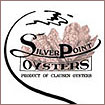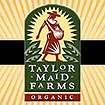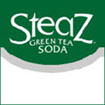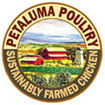Snacking can be good for you ... if you're elderly
Study:
Nibbling between meals can ensure that seniors get enough calories
MONTGOMERY,
Ala. - Jo Spann used to be a steak-and-potatoes, three-squares-a-day
type, but as the years have gone by, the 72-year-old now finds
herself snacking "all the time." A full meal now is
usually a once-a-day event.
Researchers
say such snacking is OK - in fact, regular nibbling can be good
for older people.
An
Auburn
University study of the diets of 2,000 people aged
65 and older found that snackers ate more calories at a time in
their lives when they are susceptible to weight loss and poor
nutrition. Snacking provided significantly more protein, carbohydrates
and fat.
So while snacking
might fuel obesity for the young, it may ensure that seniors are
eating enough calories, said Claire Zizza, an assistant professor
of nutrition at Auburn and lead author of the study published
in this month's Journal of the American
Dietetic Association.
She said several
factors, including health problems, medication and changes in
taste could lead to poor appetite and weight loss in seniors.
Compared to 25-year-olds, 70-year-old men ate 1,000 to 1,200 fewer
calories; the decline for women was between 600 to 800 calories
a day, according to the study.
Zizza's research,
based on a federal nutrition survey from 1999-2002, found that
snackers ate about 250 more calories than non-snackers.
Avoid empty calories
Jean Lloyd, national nutritionist for the U.S. Administration
on Aging, said the study "does a couple of real important
things" by indicating that healthy
eating can be reached various ways and by providing
guidance to health professionals.
"You're not
always sure in clinical practice how to handle a patient with
decreased appetite who may have other health problems. You don't
know if you should tell them to eat something small after lunch
because maybe then they won't be hungry later and won't eat dinner,"
Lloyd said.
"The answer
in this article says, 'No, that's good,"' she said. "...You
can suggest with confidence that having a small snack midmorning
or midafternoon is a good behavior."
Lloyd and Zizza both caution against chips, cakes, cookies and
other "empty snacks." The snacks should be healthy to
have the biggest benefit, Zizza said.
Lynelle Bumgardner,
who directs the Daleville Senior Center in southeast Alabama,
said a hot lunch is served there five days a week. She often sees
patrons eating cookies, crackers and fruit before and after the
noontime meal, which is provided using federal Meals on Wheels
money and contains one-third of the U.S. Agriculture Department's
recommended dietary allowances.
|













